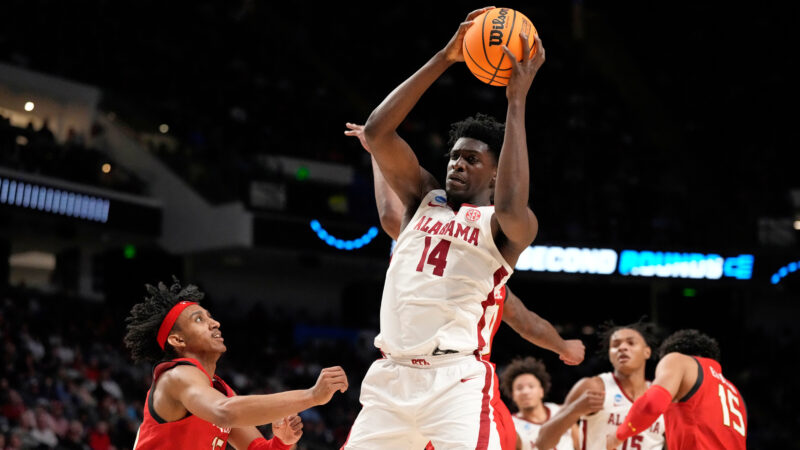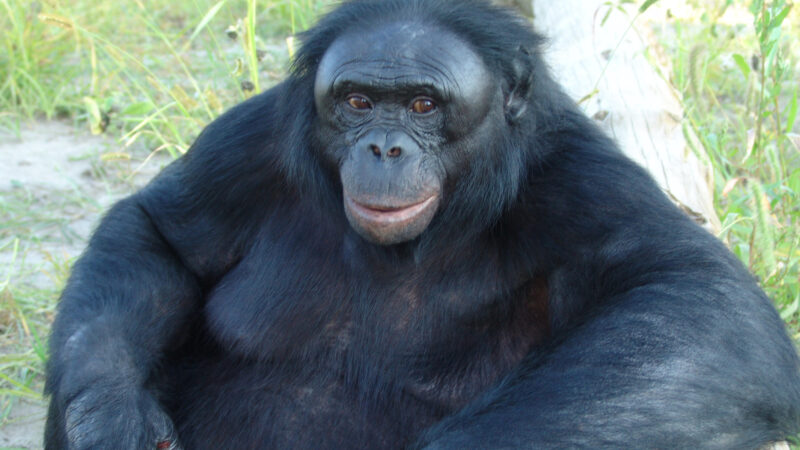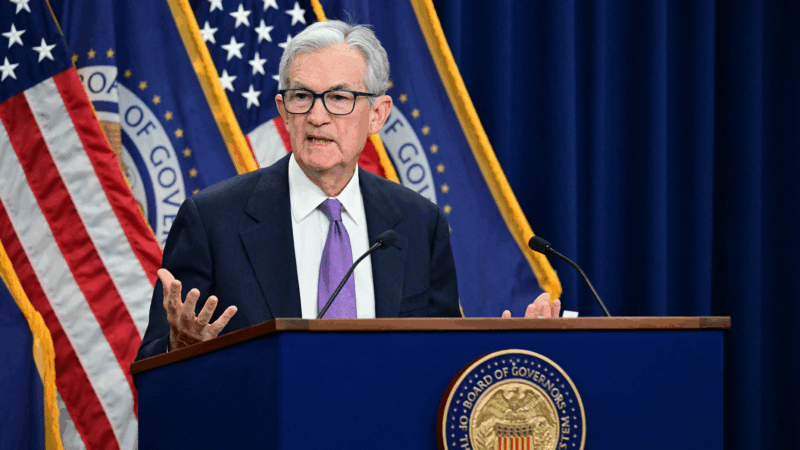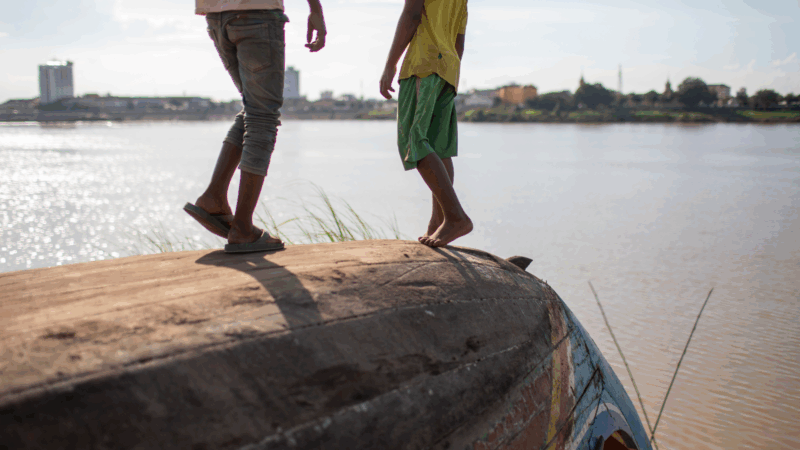Gen Z is afraid of sex — and for good reason
Sabrina Carpenter has been receiving criticism for being too sexy. Lately, there’s been backlash against the cover of her new album Man’s Best Friend, but she was also under fire during her tour for cheekily simulating sex positions while performing her song “Juno.” And it looks like some of this criticism is coming from a particular demographic: Gen Z.
While this “puriteen” discourse is probably not representative of how all or even most of Gen Z thinks about sex and sexuality, Gen Z is having less sex than previous generations at the same age. And there are legitimate reasons – many having to do with massive political and cultural changes – as to why some of Gen Z might be afraid of sex.
Brittany Luse discusses why Gen Z-ers are having less sex with Tobias Hess, contributing writer for Paper magazine and writer of the Gen Zero Substack, and Carter Sherman, reproductive health and justice reporter at The Guardian and author of The Second Coming: Sex and the Next Generation’s Fight Over Its Future.
Episode Highlights
Is Gen Z less horny?
CARTER SHERMAN: In my conversations with young people, I did not find them to be “sex negative.” If anything, I feel like they felt really bad about themselves for not having had enough sex. I would say that they are in general not less horny. I think what they are doing, though, is outsourcing a lot of their sexuality to the Internet. They’re watching a lot of porn, they’re engaging in LGBTQ plus communities online. And so I think that they are very interested in sex, but they’re not necessarily able to put it into practice as much. I mean, this is a generation that grew up during COVID, and so they missed a lot of key milestones, they just missed out on having that really critical IRL experience to know what it’s like to try and get with somebody else.
How #MeToo and the overturning of Roe v. Wade contributed to fear around sex
SHERMAN: When I talk to young people, straight ones who are worried about getting pregnant or impregnating somebody else, they were petrified. And I think that feeling that people are now going to face a kind of punishment for sex, because they’ll be forced to have kids that they don’t want, I think that is really rife within Gen Z. And that contributes to this overall miasma of anxiety and fear around sex that really doesn’t lead people to want to have it.
TOBIAS HESS: [For #MeToo,] I was a freshman in college in 2018, so right after the height of the #MeToo movement. And I think the tenor of discourse was so fraught and so scary that there was no sort of signal that sex was something that young people did for pleasure or for fun or to connect.
BRITTANY LUSE: #MeToo, for me at least, was very much connected to some of my own experiences at work, where that was truly the context where I was thinking about [#MeToo] first and foremost. I really hadn’t imagined how a big cultural change like that might also kind of affect burgeoning sexuality.
SHERMAN: I think your framing about #MeToo being about work is key to this, because I [also] thought about it a lot in the context of work. And indeed the lasting legal reforms that we saw out of #MeToo dealt with work. They were changing the laws around NDAs, they were introducing better H.R. trainings at work. But we did not see a commensurate change in the institutions that are tasked with dealing with sexual harassment and assault, particularly in schools and on college campuses. Title IX is the civil rights law that is meant to handle sex discrimination in schools, including harassment and assault. And what that law has become is basically a political football that one expert told me is, quote unquote, completely unusable for survivors at this point. So what #MeToo did for younger people who thought about #MeToo, oftentimes in terms of sex, is it did generate so much anxiety around sex, but didn’t actually provide them with any resources to address that, to make it better, to create accountability and justice and healing for themselves. So for the young women I talked to, that makes the whole world just seem so much more dangerous because it just makes it seem like now you know that something bad happened, but no one else cares.
Where we might see Gen Z’s sexlessness reverberate in the culture – outside of Sabrina Carpenter discourse
HESS: Sexlessness leads to, probably, resentment. We’ve seen the rise of incel culture, which is a stand in for a general sense of solitude and hopelessness among young men. There’s also femcels.
LUSE: Yes, I’ve heard of the femcels – girls and women who are celibate, either voluntary or involuntary.
HESS: So with that, I think the political gender divide will get more extreme as this kind of bears on. And young people will feel increased alienation from each other, from their own sexual selves.
SHERMAN: I think we’ve already seen a political harnessing of the narrative that Gen Z-ers are sexless. We’ve seen talk from the Trump administration about wanting to raise the birthrate, for example. And so it’s impossible to disentangle that pronatal impulse from this idea that young people are not having enough sex. I think the narrative of the sex recession is being used to basically say by the right, oh, gender roles have irretrievably broken down, the American family is in chaos – we need to reinstate a more hierarchical sexual order where we prioritize or even compel people into sex that is straight, that is married, and that is potentially procreative because it’s being practiced without access to abortion or access to hormonal birth control.
Judge rules 7-foot center Charles Bediako is no longer eligible to play for Alabama
Bediako was playing under a temporary restraining order that allowed the former NBA G League player to join Alabama in the middle of the season despite questions regarding his collegiate eligibility.
American Ben Ogden wins silver, breaking 50 year medal drought for U.S. men’s cross-country skiing
Ben Ogden of Vermont skied powerfully, finishing just behind Johannes Hoesflot Klaebo of Norway. It was the first Olympic medal for a U.S. men's cross-country skier since 1976.
An ape, a tea party — and the ability to imagine
The ability to imagine — to play pretend — has long been thought to be unique to humans. A new study suggests one of our closest living relatives can do it too.
How much power does the Fed chair really have?
On paper, the Fed chair is just one vote among many. In practice, the job carries far more influence. We analyze what gives the Fed chair power.
In a world built for sitting, here’s how to stay active — even when stuck inside
In the office, classroom and living room, working and relaxing mean sitting still. Our bodies evolved without chairs. Here are some tips for getting out of your seat and moving — even on cold days.
‘Please inform your friends’: The quest to make weather warnings universal
People in poor countries often get little or no warning about floods, storms and other deadly weather. Local efforts are changing that, and saving lives.








